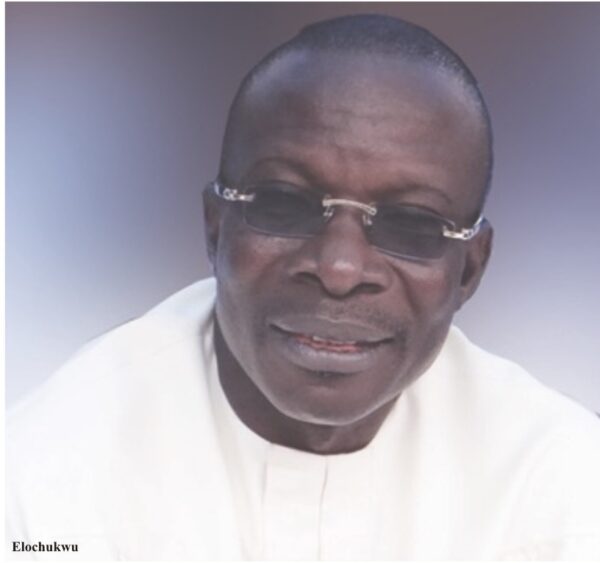
A former National President of the Association of Nigeria Licensed Customs Agents (ANLCA) and former member of the Board of Trustees; Chief Ernest Elochukwu, has stated unequivocally that he is not ready to accept the role of a patron in the association.
In an exclusive chat with our correspondent last week, ahead of the ANLCA Board of Trustees election scheduled for September 12, Elochukwu, who is the only former National President seeking to return to the board, elaborated on his reasons for continuing his bid and his views on the association’s leadership dynamics.
Elochukwu emphasized that his decision to run again is driven by a deep-seated commitment to the association, rather than a desire for honorary titles. “I have been spending my own money for the association over the years,” he revealed. “While some people have encouraged me to keep serving, others believe I should retire. I feel that I deserve a break, but if there’s consensus among stakeholders that I should continue to contribute, I’m open to that discussion.”
He expressed frustration with what he sees as a detrimental “turn-by-turn” mentality within the association, which he believes has hindered progress. Reflecting on his past efforts, Elochukwu criticized the current state of the Council for the Regulation of Freight Forwarding in Nigeria (CRFFN), which he helped to establish.
“Turn-by-turn leadership has led to CRFFN becoming a government agency focused more on revenue collection than on advancing professional standards,” he said. “Leadership should be about motivation, effectiveness, and actual contributions, not merely waiting for one’s turn.”
Addressing the suggestion that he should step aside in favour of a new generation of leaders, Elochukwu rejected the notion of transitioning into a patron role, like his predecessors Chief Taiye Oyeniyi and Chief Henry Njoku. “I do not want to be a patron,” Elochukwu asserted. “The idea of leadership being a turn-by-turn affair is harmful and outdated. The ANLCA constitution does not impose limits on board members’ terms, and I am committed to addressing the real issues and needs of the association, rather than adhering to a turn-by-turn mentality.”
He further clarified that the focus should be on what leaders bring to the table, rather than their financial status. “The notion that board members must be billionaires is misguided. The board’s role is to support the NECOM in achieving the association’s objectives, not to fit a wealthy profile,” Elochukwu explained. “I am not a billionaire, but that doesn’t disqualify me from serving effectively. The key is to evaluate leaders based on their contributions and the tangible results they deliver, not their financial standing.”
He argued that effective leadership should be based on merit and results, rather than outdated practices or superficial criteria.















